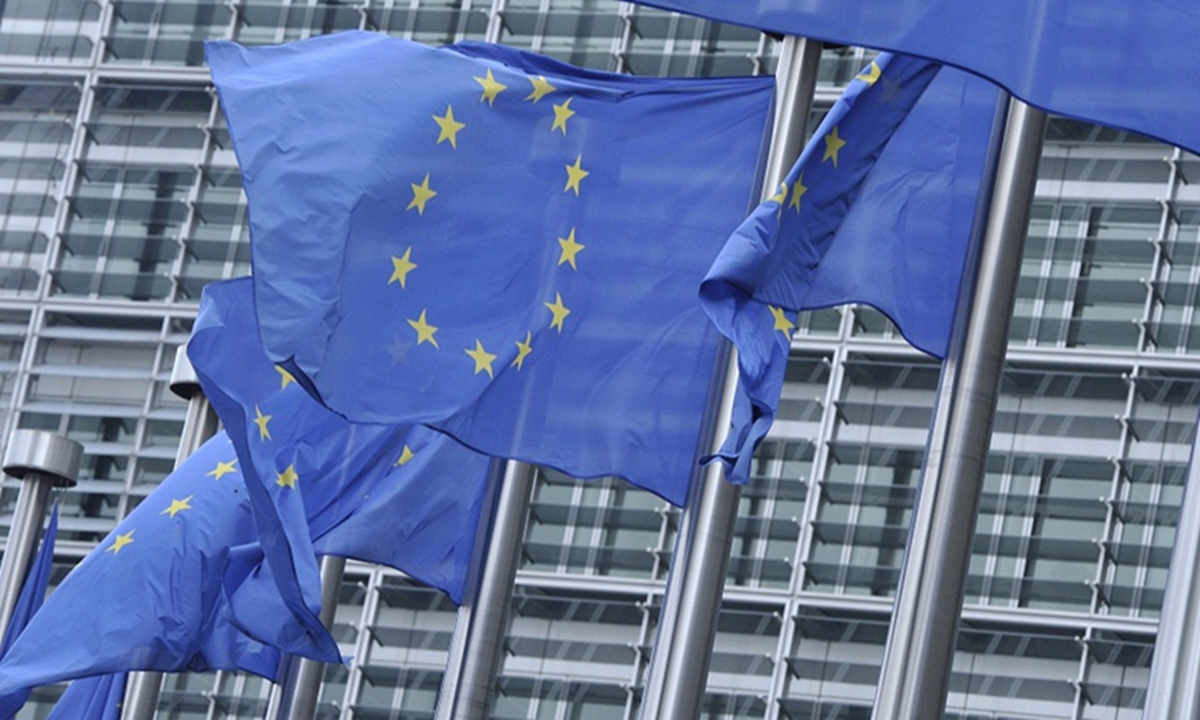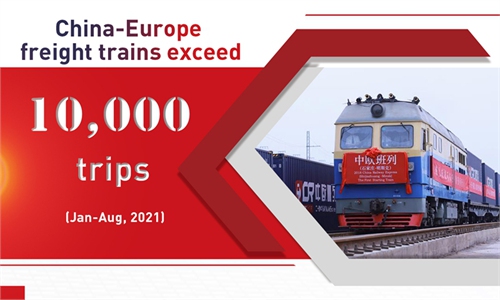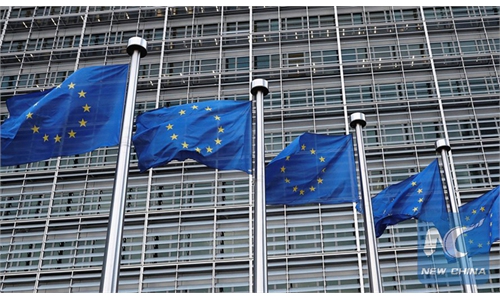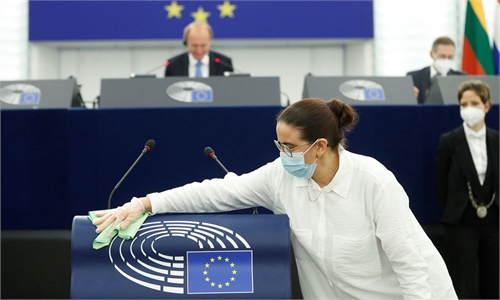
The European Union flags in front of EU headquarters in Brussels, Belgium. Photo: Xinhua
Anti-China forces within the European Parliament are expected to create fresh damage to China-EU relations by once again provoking China over the Taiwan question.The European Parliament is scheduled to vote on Wednesday on a report for China, in an aim to calling on the EU to build a new strategy to deal with China.
Among a list of policy ideas proposed in the report, members of the European Parliament (MEPs) advocated that the ratification process for the China-EU Comprehensive Agreement on Investment cannot commence until China removes sanctions, and urged the European Commission and the European Council to progress on an EU investment agreement with the island of Taiwan.
The vote comes just a few days after the European Parliament's Committee on Foreign Affairs adopted a report, titled "EU-Taiwan Relations and Cooperation," pushing for so-called closer ties between the bloc and the island of Taiwan, which the Chinese Foreign Ministry and Chinese Mission to the EU firmly opposed.
Whatever the outcome of the European Parliament's vote, the chances of the EU adopting their proposals are slim. The Taiwan region is an inalienable part of China's territory, and the one-China principle is the political foundation on which China and EU diplomatic relations have developed.
The European Parliament's advocacy of closer ties with the island of Taiwan, which is apparently beyond the scope of normal non-official economic and trade cooperation, is a blatant demonstration of putting political interests ahead of economic ones.
The negative impacts of those anti-China MEPs on China-EU relations are obvious. With their resolution hindering the normal ratification process of the China-EU Comprehensive Agreement on Investment, they have also contributed to empowering radical anti-China voices across Europe.
Political stunts staged by anti-China forces from the European Parliament to garner attention regardless of the consequences do not necessarily represent the future direction of the EU policy toward China. Since economic and trade cooperation have become the most substantial component of China-EU relations, the EU knows clearly that the Taiwan question is a red line issue for China and provoking China on the subject will only have negative repercussions.
In 2020, the Taiwan island represented the EU's 14th largest trading partner, accounting for only 1.4 percent of the total EU trade, according to statistics from the European Commission. By comparison, the Chinese mainland overtook the US to become the EU's biggest trading partner in 2020, and their bilateral trade continued to grow this year despite political headwinds.
With China's consumer market becoming one of the key markets for growing number of European firms, the EU's economic recovery post-pandemic cannot risk losing China. In any case, it doesn't make any economic and political sense to trigger some irresponsible confrontation that would only damage the atmosphere and market confidence as it relates to bilateral trade.
In this sense, the EU needs to be careful that its ties with China are not held hostage by radical and extreme ideologies.



